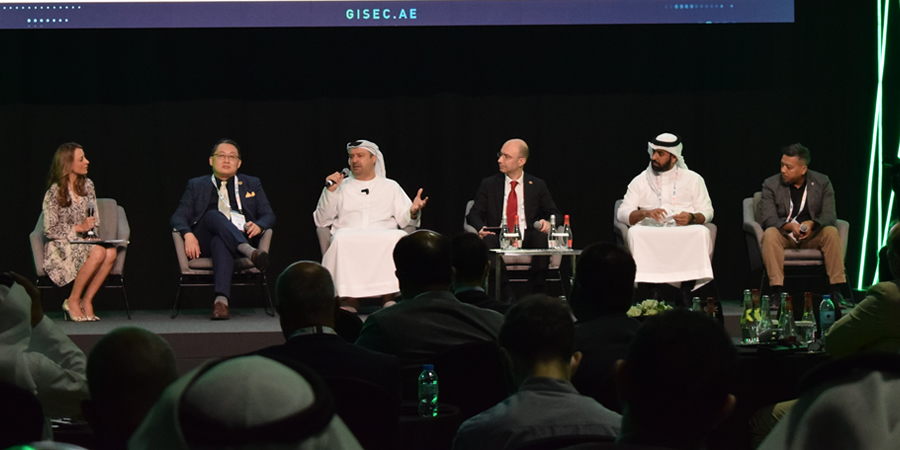Along the sidelines of GISEC 2022, the government stage tackled the interesting topic of the governments’ actions in ensuring that cities are secure by design. Representatives from the UAE, Egypt, Kuwait, and Saudi Arabia, among others have shared their insights on government commitment to cybersecurity.
“Cybersecurity has become a crucial element in safeguarding the future of cities, requiring exceptional vigilance and new thinking as well as strategies, achieving flexibility and sustainability as possible,” said Amer Sharaf, director of compliance support and alliances, Dubai Electronic Security Center (DESC).
Given the amount of adoption, transformation, and expansion of digital technologies, the reality that we are living right now requires governments to have cybersecurity in their national agendas. In fact, Sharaf highlighted that cybercrime is the third-largest economy, expected to be valued at $6 trillion by 2025. Cities like Dubai put responding to these challenges as their strategic priorities and move towards being the safest city in cyberspace.
Smart cities
In the same context, Dr. Marwan Al Zaroun, director of information security services, Dubai Electronic Security Center (DESC) has defined a smart city as infrastructure and citizen-driven, “making experience as smooth and productive as possible.”
Infrastructure can truly lead to improving people’s lives, as it incorporates digital resilience. Relatively, Mesfer Almesfer, chief information security officer (CISO), NEOM emphasized that security by design should be observed by all proponents from day one. He reiterated that three models must be updated when it comes to any good smart city: IoT, fast connectivity, and data analytics.
Cybersecurity commitments
Raising awareness of the importance and different dimensions of cybersecurity, the ITU Global Cybersecurity Index follows five pillars: legal, technical, organizational, capacity building, and international cooperation.
Following the said pillars, Dr. Ahmed Ali Abdel-Hafez Ahmed, vice president for cybersecurity affairs, national telecommunication regulatory (NTRA), Egypt shared about the cybersecurity initiatives being done in the country such as collaboration with academia, gap analysis, creating the new strategy 2022-2026, and bilateral agreements.
While Dr. Ammar Alhusaini, deputy director general, central agency for information technology (CAIT), Kuwait remarked on the progress the country is doing in terms of cybersecurity commitment. He said that the legal aspect is their strength, capacity building is focused on skillset and public awareness campaigns, and technical strategy is a must. As per Alhusaini, the impact should be measured and not how its been delivered.